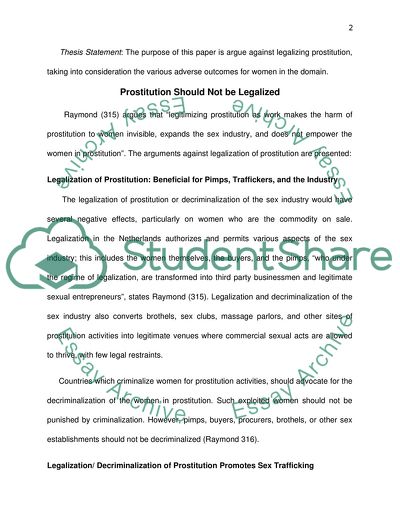Cite this document
(Cons of Legalized Prostitution Case Study Example | Topics and Well Written Essays - 2000 words - 1, n.d.)
Cons of Legalized Prostitution Case Study Example | Topics and Well Written Essays - 2000 words - 1. https://studentshare.org/law/1790621-arguing-against-legalizing-prostitution
Cons of Legalized Prostitution Case Study Example | Topics and Well Written Essays - 2000 words - 1. https://studentshare.org/law/1790621-arguing-against-legalizing-prostitution
(Cons of Legalized Prostitution Case Study Example | Topics and Well Written Essays - 2000 Words - 1)
Cons of Legalized Prostitution Case Study Example | Topics and Well Written Essays - 2000 Words - 1. https://studentshare.org/law/1790621-arguing-against-legalizing-prostitution.
Cons of Legalized Prostitution Case Study Example | Topics and Well Written Essays - 2000 Words - 1. https://studentshare.org/law/1790621-arguing-against-legalizing-prostitution.
“Cons of Legalized Prostitution Case Study Example | Topics and Well Written Essays - 2000 Words - 1”. https://studentshare.org/law/1790621-arguing-against-legalizing-prostitution.


